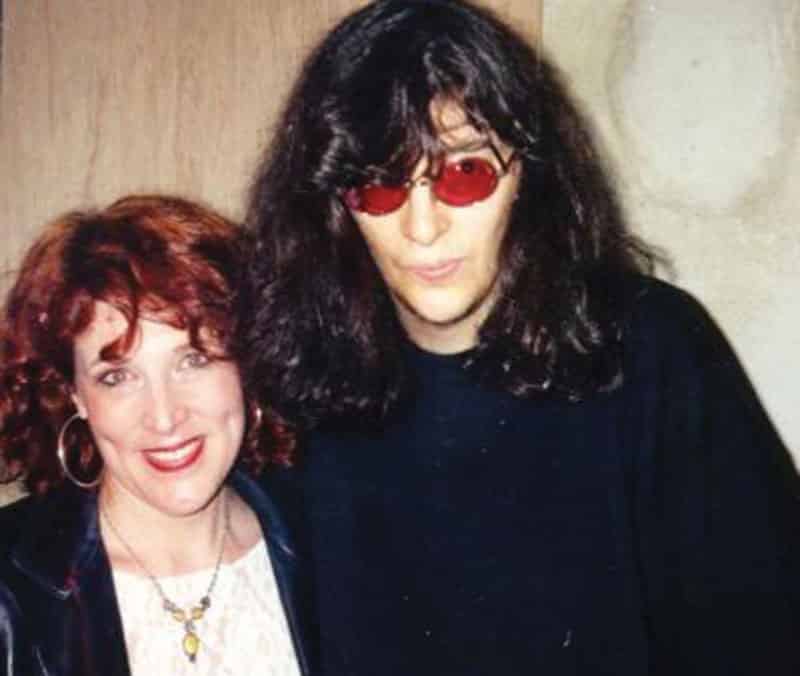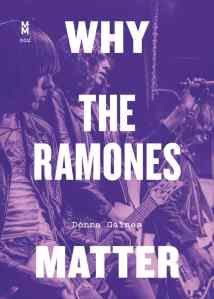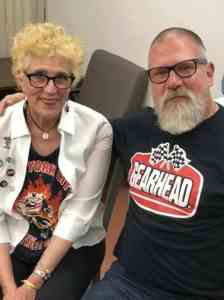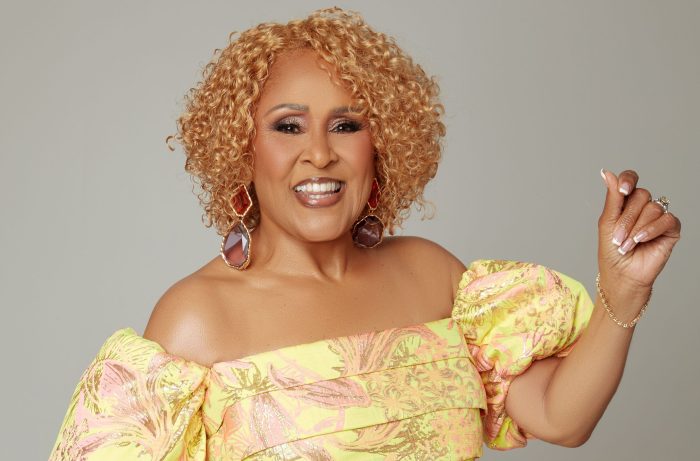Author Dr. Donna Gaines to argue ‘Why The Ramones Matter’

The Ramones may have played their last show on Aug. 6, but for fans around the world, the band has lived on long after the last of the four founding members passed away in 2014.
For Dr. Donna Gaines, it’s no accident that a group with such limited commercial success would not only go on to define a genre of music, but would have an influence that went far beyond three chords and a rebellious attitude. An international expert on youth violence and culture with a Ph.D. in sociology and a master’s degree in social work, Gaines makes this point throughout last year’s Why the Ramones Matter.
Inspired by Pete Hamill’s Why Sinatra Matters, the Ramones book is part of the University of Texas Music Matters series, edited by Gaines’ old friend and Village Voice editor, Evelyn McDonnell. Having been the person assigned by the Voice to cover the band during its 1996 farewell, Gaines wound up growing close with Joey, C.J. and Dee Dee Ramone and not only wrote the liner notes for a number of Rhino Records reissues, but also penned the speech for the Ramones 2002 induction into the Rock and Roll Hall of Fame—and their obituaries. The dynamic of going from longtime friend to fan made for some rough sledding when it came time to write the book.
“How I feel about them played a major part in all of this. I was writing it and crying and it’s also so personal because you know what they went through and that they didn’t live to see the great glory,” Gaines said. “Maybe Tommy [Ramone] and Johnny [Ramone] did a little bit. But Joey didn’t really get to see what they mean to us now, and that just broke my heart. The other thing that was hard was writing something that everyone didn’t already know. What can I write that’s really new? Maybe there’s nothing I can say that is new, but maybe there is something that I can write from a different perspective that people haven’t considered—like trauma and addiction.”

The dysfunction within the band manifested itself through the way guitarist Johnny Ramone abused Joey and Dee Dee, the former grappling with obsessive compulsive disorder and alcoholism, while the latter was bipolar and struggled with drug addiction, eventually succumbing to a heroin overdose. Looking at the band through a sociological lens, Gaines pointed out in her book that the Ramones were, “…compassionate souls ministering to others through their own brokenness as trauma survivors, outsiders and artists. [They] helped a fledgling generation soothe some of the scar tissue left behind by the previous generation—the collective shame, trauma, disappointment and sorrow passed down to us through unresolved parental histories of family violence, incest, abandonment, war, addiction, immigration; the social inequities we suffer based on race, ethnicity, class, sex and gender.” It’s a message that Gaines understood as a fan and hammers home throughout Why the Ramones Matter.
“They were talking about being an outsider. They’re talking about hating school or being treated like crap and sniffing glue or Carbona, which most people won’t admit to. They’re talking about psychotherapy as almost being repressive. They’re picking the roses of culture—chicken vindaloo, surfing, hitchhiking and referencing all this incredible music. They just put so much into it and distilled it into the purest form. It was almost alchemical, what they did,” Gaines explained.
“Dee Dee described themselves and their fans as the obvious creeps of the neighborhood. I was one of those street kids that you weren’t allowed to hang around with, like they were. They took that, turned it into art and made it into a ministry, where they made a point of including people that felt like outcasts. And I have stories in the book from personal experience from all three. Joey, Dee Dee and C.J. all identified as outcasts or misfits. They used those exact words, and it was a real truth. They’re doing what artists and poets try to do and they were doing it in pop music—aiming to seize the airwaves. It was a cultural revolution in some ways.”
Reflecting what she calls the Ramones mission and ministry are the voices she captures of numerous Ramones fans from throughout the world whose narratives reinforce Gaines’ academic observations.
“I had written a lot about them already, and I had direct access to insiders, so I interviewed people like [longtime road manager] Monte [Melnick], C.J. [Ramone] and [Joey Ramone sibling] Micky [Leigh]. I was just asking questions to flesh things out,” she said. “But my biggest amount of interviewing was the fans. I was really interested in speaking with all these people who came into my life through journalism who are big Ramones fans. They were all generations and all races, shapes and sizes. They hailed from places like Germany and Idaho to Mexico and Argentina. I even spoke to fans who are part of the Afropunk scene in Brooklyn.”
For her Huntington appearance, Gaines will be in conversation with author Bill German. In addition, there’ll be a live performance by The Younge Rochelles, a pop-punk trio who mix original material with a healthy dose of Ramones covers. Attendees can expect plenty of passion and vigor in making the case for the boys from Forest Hills.
“What [people] can expect is for me to argue the case that the Ramones matter and to provide evidence,” Gaines said. “To express anger and outrage at how they couldn’t get airplay and to tease out their message of empowerment. I have my agenda of youth and having young people hear that it’s okay to be who you are. And [the Ramones’] work ethic and that we can’t just dream about [making your dreams come true] by smoking pot and going to sleep. You have to go out there and do it.”
Rightfully proud of the sweat equity she put into this treatise that is both a weighty and breezy read, Gaines sees herself as an acolyte in a leather jacket spreading the Ramones gospel of three-minute songs and no more than three words that say everything in the title.
“Once you’re involved in the Ramones world/empire, you’re part of it for your life,” she said. “It took a lifetime of preparation. Part of what I wanted to do with myself with the book was to put down on paper that it was so much more than the music, the personalities and the drama. And that this isn’t a biography—it’s an American sociologist looking at this and saying this is why this [all] matters.”
Dr. Donna Gaines will be appearing on Jan. 13 at the next Long Island LitFest event, which will be held at Cinema Arts Centre, 423 Park Ave., Huntington. For more information, visit www.longislandlitfest.com or www.cinemaartscentre.org or call 631-423-7610.




































